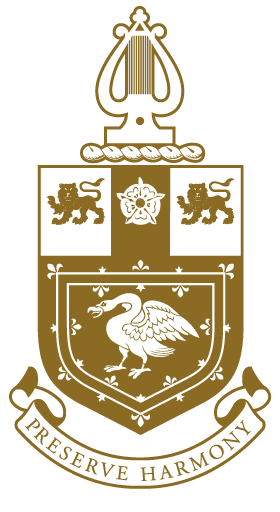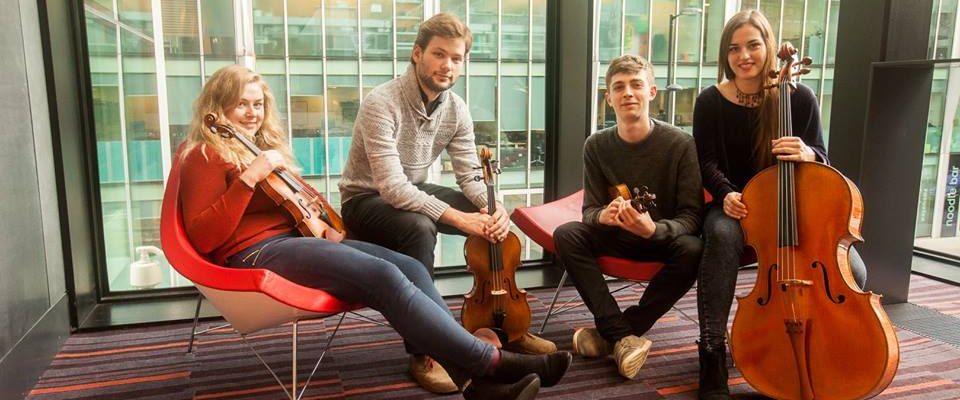Young Artist Interview: Barbican String Quartet on Finding their Voice
“Competitions can benefit musicians, but winning isn’t our main focus”, says Dutch violinist, Amarins Wierdsma, whose ensemble Barbican String Quartet recently won the 8th International Joseph Joachim Chamber Music Competition. Founded in 2014 at the GSMD, ensemble musicians Amarins Wierdsma (violin), Tim Crawford (violin), Christoph Slenczka (viola) and Yoanna Prodanova (cello) also hold the Company’s Maisie Lewis Award 2017. In 2018 they won the RPS Albert and Eugenie Frost Prize and St Martin’s in the Field Chamber Music Competition.
“Aside from the chance to make new industry contacts and secure performance opportunities, last year we decided to use competitions to push us into learning new repertoire and finding new ways to express our voice. Individually, we’ve entered lots of music competitions, but entering competitions as an ensemble is a fairly new experience for us all. How would we cope with the intense pressure of a competition as a group? How would the judges respond to our style? How do we compare to other ensembles? These were all questions we wanted to explore. Winning the Joseph Joachim was an unexpected and lovely surprise that gave us the assurance we needed to feel our music was on track.
Getting first prize also helped raise our profile as a group though performance opportunities can take time because the next concert season is always booked. However, we’re currently benefiting from previous competition successes and recently performed at the 1901 Arts Club as part of the Hattori Foundation Rush Hour Recital Series, in which we played a range of classical and more modern works. It began with about 20 minutes of Henri Dutilleux, in which we played an intricate piece of music which you could view as a Debussy and Ravel taking a step toward the modern; we then played some Schuman. As an ensemble made up of four people from distinctly different backgrounds we inevitably bring something new and unexpected to our performances, but it’s also important that we create well balanced concerts that incorporate a bit of modern music and to choose music that’s meaningful and doesn’t, for instance, simply end loud and fast just to whip up a loud applause. I think bringing modern music into the repertoire and delivering it in more every day venues is also important in reaching out to new audiences. Not everyone is comfortable with concert halls.” says Amarins.
Despite their unwavering commitment to making the ensemble a success, Amarins, Tim and Yoanna all have busy solo careers. “I think it’s healthy to have that freedom, and the experiences you have working with other musicians and those connections you make externally really benefit the group,” says Amarins whose recitals have taken her across Europe, the USA and Indonesia. Despite the obvious challenge relating to clashing schedules, the group is committed to attending every ensemble performance, and see rehearsal times together as an opportunity to go deep into the music and get their playing to the highest level. This is supported with study at the Reina Sofia School in Madrid, where the quartet spend one week roughly every other month exploring and perfecting repertoire under the tutelage of Günter Pichler.
Building on their international connections, the quartet has recently been selected as one of four senior quartets for MISQA 2019, which unites some of the foremost young string quartets from around the world. “MISQA will be a great chance for us to work with other musicians and together as a quartet and to explore different sounds and playing styles,” says Amarins. “The more things you listen to and teachers you speak to, the more you can discover what you do like and what you don’t like, from which you can build your own distinctive style. In short, you can never know too much!”
You can find out more about Barbican String Quartet on Facebook at @barbicanstringquartet
Interview by @suzywillmott





